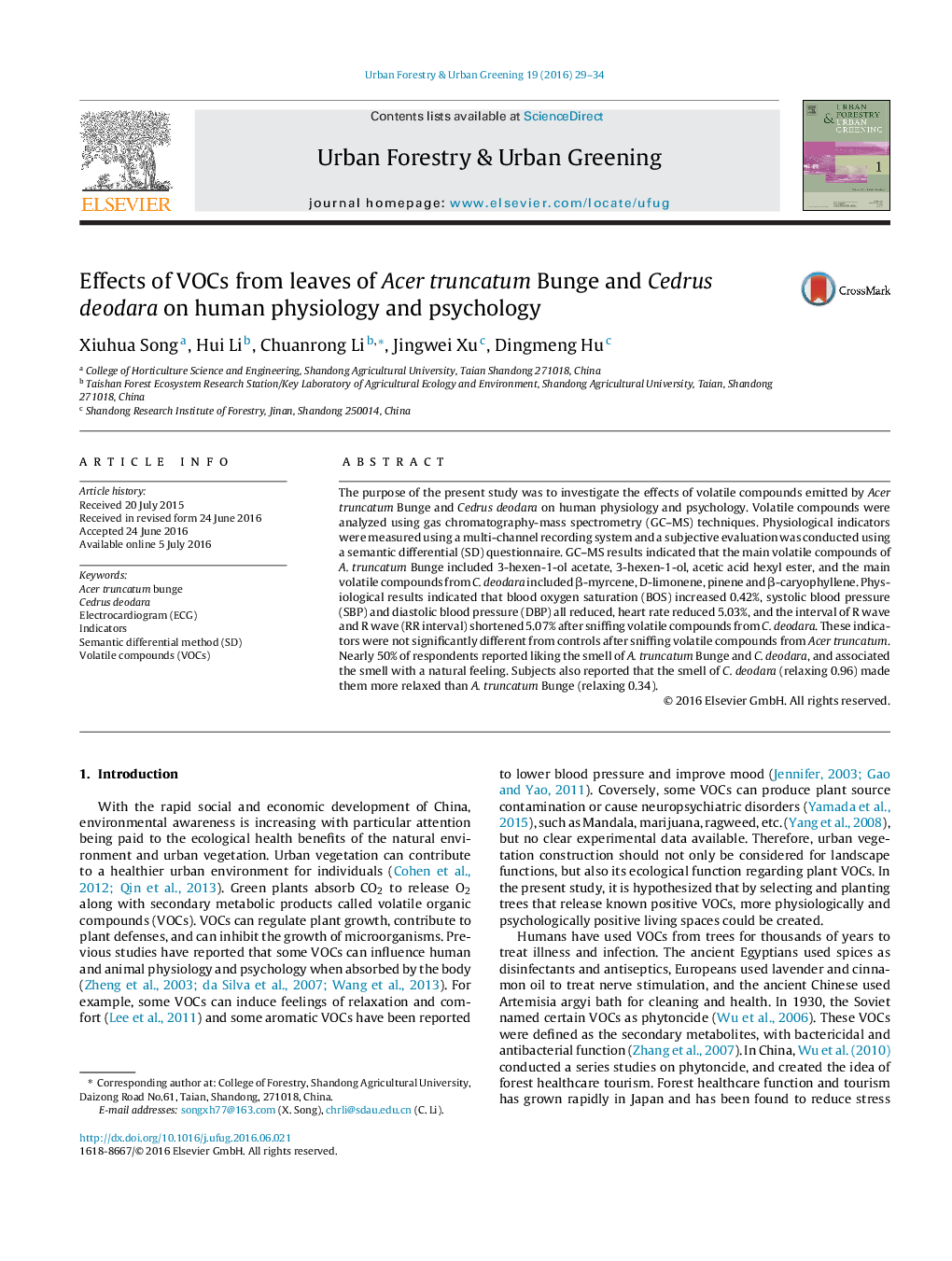| کد مقاله | کد نشریه | سال انتشار | مقاله انگلیسی | نسخه تمام متن |
|---|---|---|---|---|
| 93912 | 160238 | 2016 | 6 صفحه PDF | دانلود رایگان |
عنوان انگلیسی مقاله ISI
Effects of VOCs from leaves of Acer truncatum Bunge and Cedrus deodara on human physiology and psychology
دانلود مقاله + سفارش ترجمه
دانلود مقاله ISI انگلیسی
رایگان برای ایرانیان
کلمات کلیدی
موضوعات مرتبط
علوم زیستی و بیوفناوری
علوم کشاورزی و بیولوژیک
جنگلداری
پیش نمایش صفحه اول مقاله

چکیده انگلیسی
The purpose of the present study was to investigate the effects of volatile compounds emitted by Acer truncatum Bunge and Cedrus deodara on human physiology and psychology. Volatile compounds were analyzed using gas chromatography-mass spectrometry (GC-MS) techniques. Physiological indicators were measured using a multi-channel recording system and a subjective evaluation was conducted using a semantic differential (SD) questionnaire. GC-MS results indicated that the main volatile compounds of A. truncatum Bunge included 3-hexen-1-ol acetate, 3-hexen-1-ol, acetic acid hexyl ester, and the main volatile compounds from C. deodara included β-myrcene, D-limonene, pinene and β-caryophyllene. Physiological results indicated that blood oxygen saturation (BOS) increased 0.42%, systolic blood pressure (SBP) and diastolic blood pressure (DBP) all reduced, heart rate reduced 5.03%, and the interval of R wave and R wave (RR interval) shortened 5.07% after sniffing volatile compounds from C. deodara. These indicators were not significantly different from controls after sniffing volatile compounds from Acer truncatum. Nearly 50% of respondents reported liking the smell of A. truncatum Bunge and C. deodara, and associated the smell with a natural feeling. Subjects also reported that the smell of C. deodara (relaxing 0.96) made them more relaxed than A. truncatum Bunge (relaxing 0.34).
ناشر
Database: Elsevier - ScienceDirect (ساینس دایرکت)
Journal: Urban Forestry & Urban Greening - Volume 19, 1 September 2016, Pages 29-34
Journal: Urban Forestry & Urban Greening - Volume 19, 1 September 2016, Pages 29-34
نویسندگان
Xiuhua Song, Hui Li, Chuanrong Li, Jingwei Xu, Dingmeng Hu,